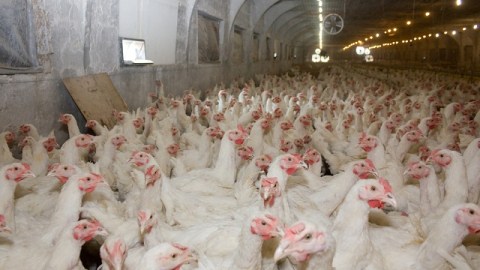Four-Fifths Of All Antibiotics In The US Go To Livestock

What’s the Latest Development?
Last week, the FDA released a report summarizing the use of antimicrobial drugs, including antibiotics, in livestock production in 2011. The Pew Campaign on Human Health and Industrial Farming compared the FDA’s data to that for human antibiotic use and discovered that almost four times as many pounds of antibiotics — 29.9 million — were given to healthy livestock as were given to sick people. Furthermore, as demonstrated in an infographic, the amount of antibiotics used for livestock has increased since 2003, while the amount used for humans has largely leveled off over the same time period.
What’s the Big Idea?
In addition, the Pew campaign looked at the latest data from the FDA’s National Antimicrobial Resistance Monitoring System (NARMS), which tests meat samples for pathogens. Writer Tom Philpott reports that based on this data, bacteria genera such as Salmonella and Campylobacter have become significantly resistant to one or more antibiotics over time. In the case of Campylobacter, about 95 percent of retail chicken products were contaminated, and of those, about half of the bacteria was resistant to tetracyclines.
Photo Credit: Shutterstock.com





